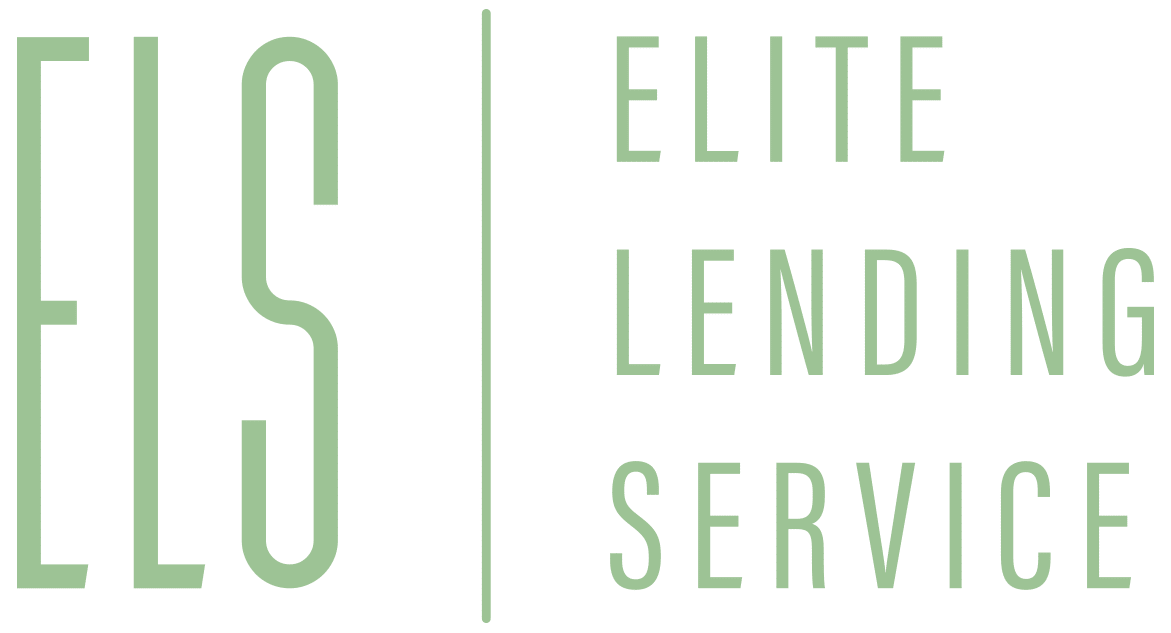Table of Contents
Ever wonder, “How much equity do I need to refinance my mortgage?” The answer revolves almost entirely around how much equity you’ve built up, and wrapping your head around that number can change the whole game. It matters because your home equity directly influences the kinds of refinancing offers that land in your inbox. The rule of thumb? Most lenders require at least 20% equity. That keeps your loan-to-value ratio at 80% (or lower), which is the sweet spot for snagging lower rates, waiving mortgage insurance, or even tapping cash out of your home. Get past that 20%, and your refinancing strategy gets a whole lot prettier.
This post is your playbook for understanding home equity and refinancing strategies, breaking down why equity is much more than a figure in your bank statement. We’ll specify exactly how much equity you need, step by simple step. By the time you reach the last paragraph, you’ll know how to flex your equity, lower your monthly mortgage payment, and keep your financial future firmly on the offense.
Key Takeaways
- Most lenders want you to have at least 20% equity in your house to go ahead with a refinance.
- – That means your loan-to-value (LTV) ratio should be 80% or lower for standard approval.
- – Good news: a VA cash-out refinance lets some veterans use up to 100% of equity.
- – Swings in the economy can make refinancing tricky, particularly if your credit isn’t glowing.
- – Check your debt-to-income (DTI) ratio ahead of time; lenders rely on it to see if you can manage the payments.
Understanding Home Equity
Home equity is the share of your house that you don’t owe anyone for. It can be a great resource for homeowners, especially when refinancing is on the table. Learning how to tap your equity the right way can help you lock in the best refinancing deal.
To find your home equity, check your house’s current value and subtract the remaining mortgage balance. The number you get is the cash value you hold in your property.
What is Home Equity?
Think of your home as being worth $300,000 and your mortgage showing a $200,000 balance. Your equity, in this example, is $100,000. That’s the dollar figure banks use when you apply to refinance.
Householders often use this equity to pay for remodeling, finance a degree, or pay down high-interest loans. You can cash it out through a refinance that gives you money at closing or through a home equity line of credit (HELOC) or a home equity loan.
How is Home Equity Calculated?
Use the current market value of your home and the remaining mortgage balance. Suppose the house is appraised at $500,000 and you owe $350,000. Your equity will be the difference, which is $150,000.
Lenders will always check your Loan-to-Value Ratio, or LTV, when you refinance. To find it, divide your remaining mortgage balance by your home’s latest appraised value, then multiply by 100. A lower LTV indicates you’re sitting on more equity, making your refinance terms sweeter.
Want more straightforward home-buying tips? Head over to our buyers guide. A little knowledge can give you the upper hand when it’s time to refinance.
Equity Plays the Lead in a Mortgage Refi
Your home equity is a headline player if you’re thinking of refinancing. More of it lets you see better rates, fewer fees, and even ways to avoid private mortgage insurance. A well-planned refinance can chop your rate, lower your monthly payment, and kick PMI to the curb.
Locking in a Lower Interest Rate
When you’ve piled up equity, lenders see a cushion. That’s why they’re likely to offer you a lower interest rate, dropping your monthly payment and saving you money over the life of the loan. More equity usually equals less risk in the lender’s eyes—and more savings in yours.
Cutting Your Monthly Payment When Refinancing
The more equity you build in your home, the more options you get once it’s time to refinance. One of the easiest decisions is to refinance your mortgage to lower the monthly payment. That means you can hang on to extra money every month, money you can stash in savings, pay off other bills, or even take a small vacation. As a rule of thumb, aim to have at least 20% equity in your home. When you hit that mark, lenders are more likely to give you the best interest rates and terms.

Dropping PMI Can Save You Cash
If your house has built up at least 20% equity, you can ask your lender to cancel private mortgage insurance (PMI). That means your monthly mortgage payment gets smaller and you save more money each month. Without PMI, your mortgage becomes cheaper overall, and refinancing your loan to a lower rate is easier to justify. The fewer extra fees you pay, the more straightforward your mortgage process is.
Know the Equity Needed to Refinance
When you want to refinance, lenders want to see a certain amount of equity. Each lender has different standards, but knowing the general figures lets you compare offers quickly and protects you from wasting time. Being aware of the numbers makes the refinance go more smoothly and get to the closing table faster.
Common Equity and LTV Guidelines
Most lenders want you to have at least 20% equity, which means your loan-to-value (LTV) ratio is 80% or lower. Hitting that ratio is usually what opens the door to better mortgage rates and terms. If you have an FHA loan, the threshold can sometimes be lower, so check your specific loan terms. If your equity is a bit above 20%, the lender may offer you an even lower rate or better loan features. Note, too, that some lenders will let you take out a cash-out refinance up to 80% of your home value, tapping into your equity while refinancing.
Variances by Lender
Lenders don’t always follow a fixed set of rules. While most want you to have at least 20% equity to refinance, a few might go as low as 10%. That difference sounds small, but it can save you a lot of cash. Spending a few minutes comparing lenders on equity requirements can point you to the option that saves the most hassle and money. Picking the lender that lines up perfectly with your plans often smooths the rest of the refinance process.
Types of Refinancing Options
Once you’ve got a mortgage, it’s worth checking how refinancing can boost your budget. The two go-to choices are the rate-and-term refinance and the cash-out refinance. Knowing how each works opens the door to choosing the smarter option.
Rate-and-Term Refinance
A rate-and-term refinance lets you adjust the interest rate, the length of the loan, or both—without borrowing more than you owe. The goal most of the time is to lock in a better rate, which trims your monthly payment or cuts years off your mortgage. Homeowners usually jump on this as soon as rates dip. The interest dollars you save can pile up over the remaining term, which is why this option shows up on most people’s short list.
Cash-Out Refinance
With a cash-out refinance, you get a little extra bang for your mortgage buck. Instead of just paying off what you owe, you take out a bigger loan, and the extra cash is yours to spend. Maybe you want to remodel the kitchen, consolidate some high-interest credit card debt, or invest somewhere else. Let’s say your home appraises at $380,000 and you owe $120,000. You could refinance for, say, $304,000, and walk away with around $184,000 after paying off the existing loan.
It’s tempting, for sure, but tread carefully. You’ll swap your current mortgage for a larger one, and because you’re spreading the new total over the same or sometimes a longer term, the total interest could balloon over the life of the loan. Take time to compare monthly payments, interest rates, and the new loan term so you know if the refinance really helps your budget in the long run.

Benefits of Refinancing with Elite Lending Service
Refinancing with Elite Lending Service opens the door to several advantages designed to cushion your budget while securing your mortgage. Their experts study the mortgage landscape daily. This ongoing diligence enables homeowners to sift through refinancing options and choose the one that suits them best.
The Elite team carries years of industry knowledge. They sift through numbers to uncover mortgage solutions that match your unique financial story. As a result, refinancing becomes smooth, simple, and surprisingly straightforward.
Deep Industry Expertise
Elite Lending Service is plugged into the pulse of the mortgage market. Regular check-ins with numerous lenders let them spot the best rates and the kinder terms everyone else may miss. By leaning on a mortgage broker like Elite Lending Service, homeowners can pocket real savings. Recent studies suggest that working with the right broker can trim costs by nearly $1,500 throughout the life of a loan.
Refinancing That Fits You
Elite Lending won’t lock you into one-size-fits-all solutions. They start by absorbing your refinancing dreams. Want to pull cash from built-up equity? Prefer a lower interest rate? The team listens and primes loan options that line up with your vision. By serving up tailored plans, they boost the odds of a smooth refinancing, creating results that you can start enjoying right away.
Steps to Calculate Your Home Equity
Finding out how much equity you have in your home isn’t hard. Just follow these steps three steps. Start by determining how much your house is worth. You can compare it to similar homes nearby or get an appraisal for an exact number. This value is the first piece you need for the math.
Assessing Property Value
Look for homes in your neighborhood that are like yours. Check selling prices on home sales sites. Think about the condition of your house, too. If it needs a new roof or fresh paint, that may lower the value. Once you have a number that feels right, you can use it in your calculation.
Understanding Outstanding Mortgage Balance
Next, find out how much you owe on your mortgage. You can find this figure on your most recent statement or by logging into your lender’s online portal. The mortgage balance is the second number you need. Subtract the mortgage balance from your home’s value. The total is your home equity. This shows how much of your house you truly own.
Common Myths About Home Equity
When refinancing your mortgage, it’s just as important to separate fact from fiction about home equity. A popular myth is that you need lots of equity to get a lower rate. This isn’t always true; lenders also consider your credit, debt, and income. Understanding the complete picture prevents costly mistakes. Always double-check the requirements before deciding.
Misconceptions about Equity and Refinancing
A lot of people think you can refinance even if you have very little equity in your home. In reality, the less equity you have, the fewer options are left on the table, and your approval can feel more like an uphill climb. So, it makes sense to figure out what your equity position is before you kick things into gear.
Debunking the 20% Equity Rule
You’ve probably heard you can’t refinance without at least 20% equity, right? The truth is that consumers may still find good deals even if they have less. Various lenders, including ones that work with FHA and VA loans, are waiving the 20% requirement. Knowing you don’t always need that golden number can show you the options you didn’t know existed. A conversation with a mortgage professional can help you spot the least bumpy route toward a new loan.
Preparing for the Refinancing Process
Refinancing is not a Saturday-afternoon activity. To set the process in motion, you need a game plan. First, you should have a checklist of the mortgage documents you’ll need. Gathering your pay stubs, last two years of tax returns, and a full list of any existing monthly debts now makes your approval odds better later.
Document Preparation
Speed and success are in the details, and that starts with your paperwork. A lender will want to see proof of income, a copy of your current mortgage statement, and any other open debts. If you keep these files orderly and complete, you’ll zip through the application process and dodge the last-minute headaches that missing documents cause.
Credit Score Considerations
Your credit score is one of the biggest factors when you refinance a mortgage. Lenders pull this number to see if you’re a good risk and to set your loan terms. For conventional loans, you’ll generally want a score of at least 620. In the case of top-tier loans, a score of 580 is often the minimum.
When you know the cutoff requirements, you can take steps to raise your number. Better credit can translate to lower fees, a lower interest rate, and more loan products. Check your credit report regularly, dispute any mistakes, and pay down any high credit card balances to nudge your score higher. A few extra points can really pay off when the lender crunches the numbers.
When to Consider Refinancing
Pinpointing the perfect refinance moment means examining a few key signals. The biggest is interest rate behavior. Keep an eye on broad mortgage rates; when you see them trending downward, that may open a window.
A rule of thumb is to refinance when the going rate is at least 2% lower than your current rate. When this happens, lenders typically find your case easy to justify, and you can save real money.
Market Conditions
Market swings can create quick opportunities. Recessions, Fed moves, and even global events can push mortgage rates lower. When headlines change, take a moment to see if your rate is higher than the current market. A refinance in a low-rate climate can mean hundreds of dollars in monthly savings. Keep tracking rates and move when you see a clear benefit.
Imagine you owe $100,000 on a mortgage with 7% interest. If you refinance to a new 5% rate, your monthly payment drops from $665 to $536. That’s a simple example showing just how powerful refinancing can be when the right rate comes along.
Know Your Personal Shine
Market rates can dazzle, but the starting blocker, your personal situation, matters more. Is your income steady? Do you have some savings? What about debts? The answers will shape your refinancing success. A credit score over 740 is a must if you want the very best rates. Peek at your finances first to see if a lower rate matches your long-term money goals.
Get Expert Help at Elite Lending Service
Refinancing can be a maze. If it feels tangled, a steady guide can save time and cash. Elite Lending Service sees the twists and the shortcuts. With over 20 years in the game, Brad Bailey and his mortgage pros know the map inside and out. They explain the numbers in plain words, help you spot the right option, and cheer you on.
Why Call Elite Lending Service?
Cash-out refinancing is booming, but the details can bite if you’re not careful. Elite Lending Service cuts through noise, showing how to tap your home’s value while keeping a strong long-term plan. They read the fine print with you, making sure you know the cost vs. the benefit.
Think it’s time to refinance? Don’t wait. Call Elite Lending Service at (904) 263-0376 or email brad@elitelendingservice.com. Your home can do more for you, and this team will help it earn every dime.

